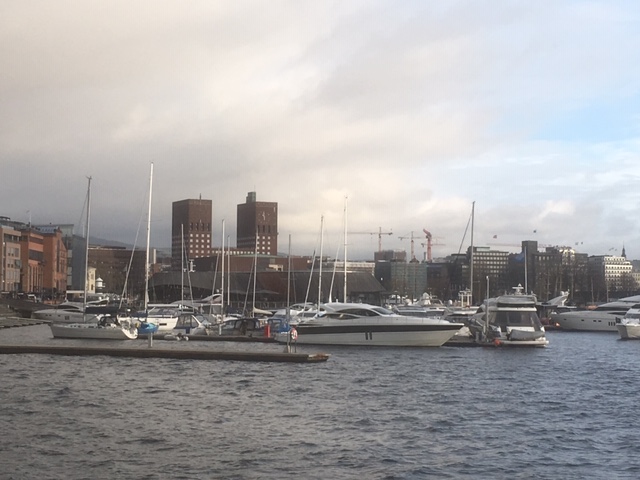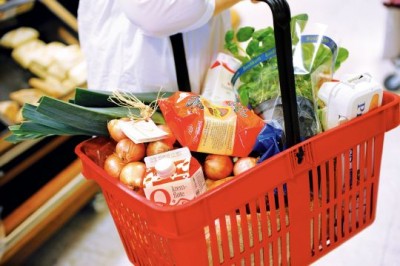NEWS ANALYSIS/UPDATED: The rich are getting richer and the poor poorer in Norway, where another rise in interest rates is meant to curb inflation. The higher rates will also raise household costs for many already struggling with big bills, at a time when highly paid executives at companies profiting on the war in Ukraine have been pocketing huge bonuses in addition to multi-million-kroner salaries, generous pension plans and other benefits.

The central bank’s decision on Thursday to boost its policy rate by another quarter-point, to 3 percent, came as no surprise. Inflation has eased a bit, to just under 6 percent, but remains way over Norges Bank’s 2 percent target. The central bank’s committee charged with forming monetary policy and ensuring financial stability decided a higher policy rate is therefore needed. More boosts aimed at cooling consumer demand and Norway’s still-strong economy are due later this spring.
“There is considerable uncertainty about future economic developments,” Norges Bank stated Governor Ida Wolden Bache when announcing the interest rate increase, “but if developments turn out as we now expect, the policy rate will be raised further in May.” Probably by another quarter point, with yet another rise by summer, bringing the policy rate up to 3.5 percent.
That in turn will bring mortgage rates up to more than 5 percent, and add thousands of kroner a month to payments on mortgages that have swelled along with housing prices over the past few years. It’s not unusual for households to have mortgages of several million kroner, most all with adjustable rates. Commercial banks are quick to send out notices of rate hikes on loans, less so when it comes to raising interest rates on savings accounts.
Bache’s job is to control inflation and maintain financial stability in Norway. That often comes at a much higher price to those with the least resources: Newspaper Aftenposten reported this week how household interest rate costs alone rose by just over NOK 40 billion last year, from NOK 94 billion in 2021 to NOK 135 billion last year, according to state statistics bureau SSB (Statistics Norway). Households’ interest rate income on savings was much less, rising from NOK 7.2 billion to NOK 17.5 billion. The bottom line, especially for those with large mortgages, will be higher mortgage payments coming on top of bigger bills for most everything else.

It will be tough for many, with newspaper Dagsavisen reporting recently that a “new type of poverty” has reached Norway. It applies to people who have full-time jobs but aren’t earning enough to pay monthly bills for shelter, food and other essentials. It’s ironic that this has emerged during a Labour Party-led government that vowed to meet the needs of “ordinary folks.”
Called “the working poor” in other countries, it’s a phenomenon that Norway had largely avoided, but it’s been confirmed in the record-long lines at local food banks and “soup kitchens” in Oslo and other cities. More than 900 people visited Oslo’s so-called Fattighuset (literally, The Poor House) on the day before Christmas Eve last year, five times as many as in earlier years. Last fall, the Salvation Army in Moss, south of Oslo, handed out record bags of food and essentials to people whose entire monthly income had already been spent on housing costs and utilities.
“A lot of people need help now,” Bjørn Løvdahl of the Salvation Army told Dagsavisen. “It’s incredibly embarrassing for some to ask for help, especially elderly people, and they also want to help their children.” State welfare agency NAV has also seen a jump in applications for aid, but has been accused of failing to respond quickly enough to meet urgent needs.
Newspaper Klassekampen has also reported on how Norwegians with low incomes need to use 30 percent of their net pay on food, utilities and fuel, while those with high incomes use just 10 percent. “Many try to hide their financial troubles,” reported Aftenposten earlier this winter, but an estimated 19,000 children in Oslo live in low-income households and their parents have shown up at Red Cross-sponsored events where they can eat dinner for free, play games or paint pictures.

It also emerges through statistics showing that the gap between those earning low- to moderate pay and those with high salaries and benefits is widening. State statistics bureau SSB (Statistics Norway) reports that fully 10 percent of full-time workers earn an average of NOK 340,000 (just under USD 34,000) a year, and their wages have risen by only an average 2 percent per year.
Labour Minister Marte Mjøs Persen of the Labour Party admits that pay gaps have increased in recent years. Liberalized rules have allowed migration of workers from abroad who’ve been willing to work for lower wages than many Norwegians, and allowed Norwegian employers to pay less for both skilled- and unskilled workers. Persen has appointed yet another government commission to study the issue.
The state, meanwhile, is raking in record high tax revenue and dividends from its stakes in major Norwegian companies that have been profiting greatly on the high energy rates that skyrocketed after Russia invaded Ukraine last year. When the price of oil, gas and electricity shot up, so did the profits of Norwegian companies like Equinor, Norsk Hydro, Statkraft, Kongsberg and DNB, Norway’s biggest bank. That further raises the salaries and bonuses of their top executives and traders, as in the case of Statkraft.

Newspaper Dagens Næringsliv (DN) has written extensively about how Statkraft traders divvied up around NOK 2.2 billion in bonus income alone for last year. Statkraft CEO Christian Rynning-Tønnesen admitted the bonuses were high but defends them as “unintentional,” and the result of record results. The bonus system, he insists, has since been altered in the event of windfall profits. The so-called “petro profits,” or “war profits” also raise a moral dilemma.
The CEOs of state-controlled companies all earned well themselves, with DNB boss Kjerstin Braathen, for example, paid NOK 15.4 million in bonus and salary last year, Hydro CEO Hilde Merete Aasheim NOK 15.7 million and Equinor chief Anders Opedal NOK 19.6 million last year. Most enjoyed total pay raises in the double-digits, even though they continue to insist on “moderation” for their workers.

The paradox is likely to be at the heart of the annual labour negotiations set to begin next week. Labour leaders have been stressing that executives don’t practice what they preach, and have been accused of hyprocrisy. The government has been accused of such, too, since all top politicians and Members of Parliament now earn well over NOK 1 million a year and the state treasury itself has never taken in so much tax revenue, or seen more oil and gas revenue deposited into Norway’s huge sovereign wealth fund.
It’s led to complaints, not only from union leaders but from voters. Recent public opinion polls show the current Labour Party-led government with record low support. At least one Member of Parliament, Truls Vasvik, has also called upon DNB especially, to have some sympathy for customers suddenly struggling to make ends meet: “Food prices, electricity bills, fuel costs, interest rates, all prices and costs are rising,” Vasvik wrote in a recent commentary in DN. “It’s left families and businesses with less money, while we see DNB celebrating record results of NOK 10 billion in the last quarter alone. It’s good that we have a bank that’s solid, but these are special times. No one should raise their rates or prices more than necessary. DNB’s profits suggest there’s potential for the bank to take on a bit more social responsibility.”
Norway has long prided itself as a country with relatively few social differences and a strong social welfare state. Wealth from Norway’s offshore oil and gas fields has been trickling down into society for more than 50 years, but now its distribution is being questioned. While teachers and nurses have been denied pay raise requests and utlility bills have tripled or quadrupled, there’s growing resentment over how the state itself and top executives of state-owned companies are earning so well. Criticism is also rising over how the government hasn’t used its ownership muscle to demand cuts in executive pay and especially bonuses.
The issue is likely to come to a head starting next week, when wage talks get underway. Labour organizations have already been accusing executives and the boards of directors backing them of being “tone deaf” and totally out of step with the rank and file. There’s a long history of trouble in trying to control executive pay, however, and government officials have been reluctant or unable to convince the boards they appoint that high executive pay, big bonuses and generous pension plans can be a liability in a social welfare state. Company officials routinely respond that they need to remain competitive in the job market, and stress that executive pay in Norway remains lower than in many other countries such as the US and UK.
“They just don’t give a damn,” wrote political commentator Lars West Johnsen in Dagsavisen on Friday. “They don’t care about what’s morally correct in an historic time of crisis. They don’t care about the signals they’re sending. ‘Moderation’ is plain and simple a foreign word in Norwegian boardrooms.”
NewsinEnglish.no/Nina Berglund

